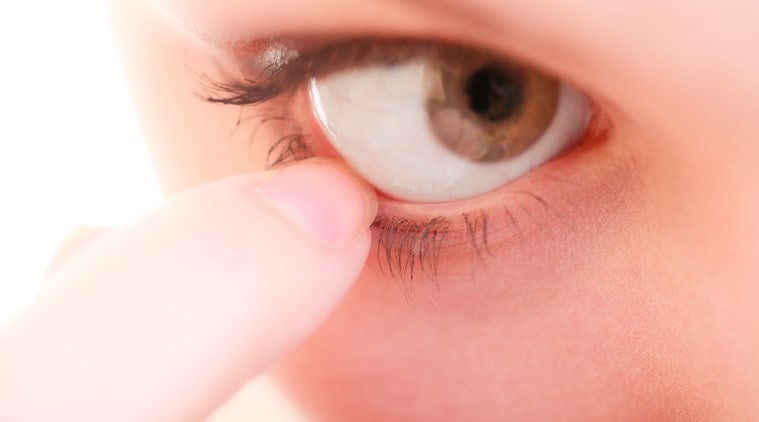Home » Health News »
Experiencing dry eyes this winter? Here’s what you need to do
Follow these easy tips to keep your eyes protected this winter.

Dry eyes is a common problem that many people experience during winter. It is often a result of windy conditions outdoors and the use of heaters indoors which exposes the eyes to dry heat. As the temperature decreases, air becomes colder and drier, hence like skin, the eyes also loose moisture due to evaporation. Consequently, itching and burning sensation is experienced in the eyes, sometimes also associated with redness and excessive tearing. Some can even experience watery vision as our eyes try to compensate for the dryness. Leaving the condition untrated for long can cause blurry vision and even damage the cornea.
Poor ventilation can also lead to dry eyes which can increase the spread of infections. Whatever the symptoms, dry eyes can cause significant discomfort during the long winter season.
Notice flashes or black spots in your vision? Here’s what you need to know
Here’s how you can keep your eyes protected, suggests Dr Prardhana, consultant ophthalmologist and glaucoma specialist, MaxiVision Super Specialty Eye Hospital group.
*Drink lots of fluids to keep the body as well as eyes hydrated.
*Avoid rubbing the eyes to keep them moist. One can also use eye drops a few times a day. If you have chronic dry eyes, speak to your eye doctor about the best product.
*Use humidifiers in the house to add some moisture to indoor air.
*Stay away from direct heat such as fireplace as it increases the evaporation and makes the eyes and skin much drier.
*Try to avoid digital devices as much as possible as they increase the effects of dryness on the eyes. It is also important to blink often.
*Consume foods rich in vitamin A and omega 3 fatty acids like fatty fishes, like salmon; flax seeds, chia seeds, as they improve the function of Meibomian glands and thus increase the lipid layer in the tears which help in retaining the moisture in the eye.

*Use 100 per cent UV protected sunglasses, especially in harsh environments like snow and ice as they magnify the UV rays and make them stronger which can lead to snow blindness.
*Eye hygiene along with frequent hand washing is vital in preventing and spreading infections and flu of the eye.
*Don’t share eye make-up and cosmetics with friends and family as this could spread infections.
*Schedule regular eye examinations to maintain good eyesight and health.
*Give your eyes a break. If your contact lenses are causing irritation, take a break and wear your glasses for a few days. Also talk to your optometrist about switching to contacts that are better for dry eyes.
However, if the condition prevails, contact your eye doctor. It could be that your condition requires medical intervention.
Source: Read Full Article


